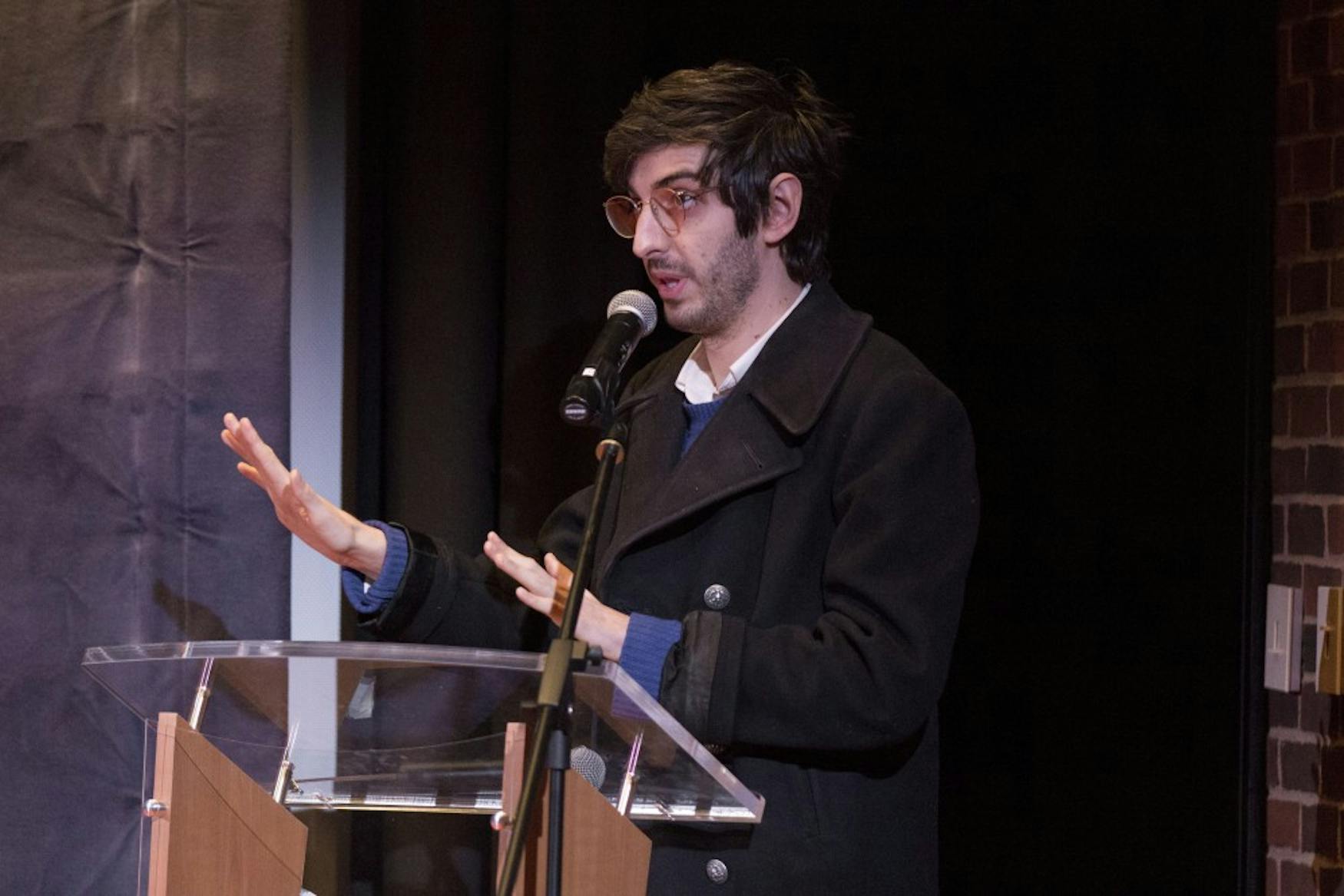Hamilton Morris on high (quality) filmmaking
Psychedelics enthusiasts huddled into the Wasserman Cinematheque at the Brandeis International Business School last Thursday night. The atmosphere did not feel intimate, but rather quite distant, and the entire room smelled heavily of marijuana. The speaker for the event was journalist and filmmaker Hamilton Morris, who shared season two, episode six of his show, “Hamilton’s Pharmacopeia on Vice.” The episode was titled, “A Clandestine Chemist’s Tale.” In his show he explores the history and process of making various psychedelic drugs, from mushrooms to hallucinogenic frog venom. The show has a huge following; even a viewer not interested in partaking in such experiences can find the documentary-style episodes to be actually quite intriguing.
The screening began with a brief introduction by Morris about the episode. Most audience members had already seen it; however, this version was longer than the one available online, and less censored. Morris explained how the process of making the episode was extremely difficult, and understandably so, due to the clandestine nature of the highly illegal and controversial drug, MDMA. Finding a clandestine chemist who had synthesized the drug is no easy task, especially one who would talk about it on camera to a large viewership. Morris also told us that Steve Gill, the main chemist featured in the episode, is an elusive character who constantly went through depressive periods, which made contact and filming difficult.
The episode, which was about an hour long, gave viewers a comprehensive look at the process of making MDMA and included interviews with big clandestine producers of MDMA, as well as with law enforcement and one Drug Enforcement Administration chemist. We met Gill who, with his wife during the 1990s, created a successful clandestine chemistry empire selling MDMA and other similar chemical compounds before he was eventually caught and arrested after decades of being successfully hidden. However, contrary to most assumptions about drug dealing and the industry, Gill did not make MDMA for profit purposes. He discussed his passion for chemistry as a young teenager, and how synthesizing chemicals was just something that he constantly loved to do. He didn’t make MDMA out of the adrenaline of it being criminal and clandestine, but rather was simply interested in playing with all different types of chemical compounds. Morris also gave us a look into an clandestine MDMA lab with two anonymous chemists, who even walked us through a step by step demonstration, from heating to distilling to freezing. Making MDMA requires many intricate steps with materials that are extremely hard to attain without an official license which authorizes the ability to work with such dangerous chemicals.
Morris’s message really manifested during the interview with the DEA chemist. The chemist, just like Gill, had created all of the very same drugs: MDMA, MDA, MMDA and more. The only difference between the two was that one was doing it illegally and eventually had his life ruined, whereas the other did it as an official government career without complication. Both motives stemmed from a love and extensive knowledge of chemistry. At the end of the episode, Morris said that the stigma towards MDMA ignores the amount of science and technique that comes from creating MDMA, that the U.S.’s ban on clandestine chemistry prevents young people from practicing chemical synthesis, a really unique and interesting type of science.
A Q&A filled with inquiries and compliments followed the end of the screening. One person asked how Morris was able to do this entire episode without facing legal barriers, to which he responded that filming a “total synthesis of MDMA on television” is surprisingly not against the law. Another asked about the scene in which he compared the two chemists, the DEA chemist and Steve Gill, and what the intention of that scene was. To this Morris answered that the two are almost the same — the DEA chemist had “every element of being criminal except for committing the crime.” It was evident by the hands raised that there were many more curious voices wanting to be heard, but not enough time. Overall, hearing Morris’ thoughtful and thorough responses to questions about his passion for chemistry and about the process of making the episode was definitely the highlight of the event. I only wish it were longer, because it seemed as if he had a lot to say.



Please note All comments are eligible for publication in The Justice.